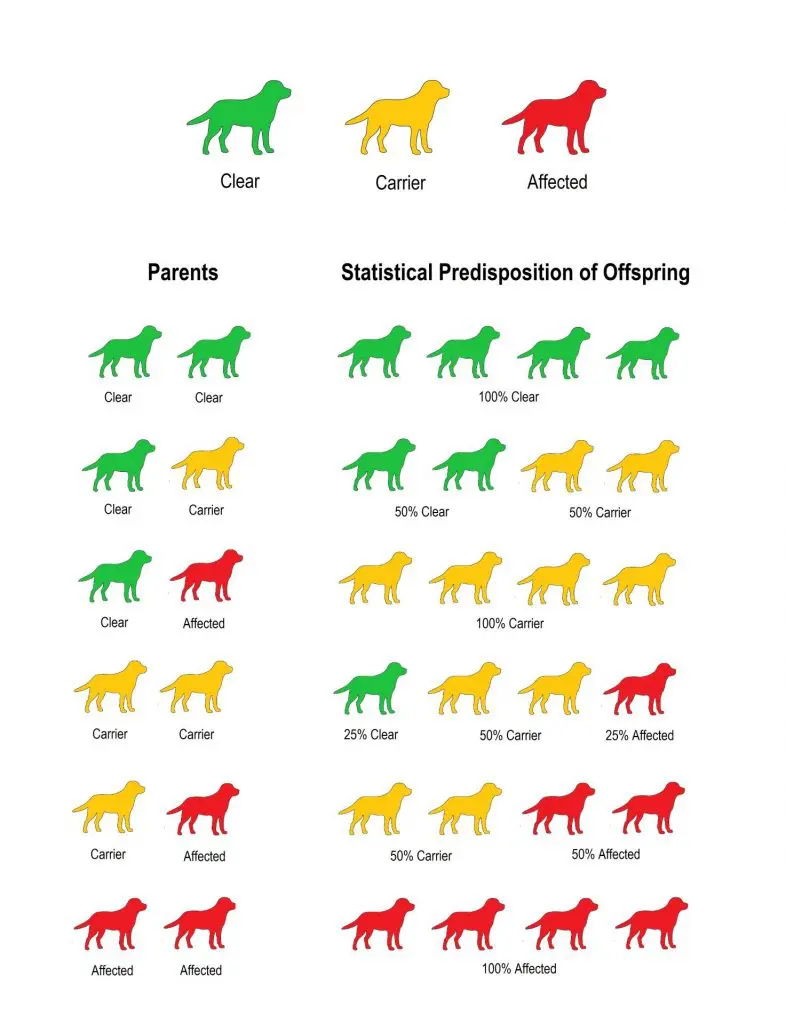Why do we health test?
At Hunnington Farm’s, your puppy’s health and is our number one priority. We preform health testing on all parent dogs to ensure the health and quality of the dogs in our breeding program.
What health tests do we preform?
We use two different methods of genetic testing. All parent dogs are OFA Certified (orthopedic Foundation for Animals) for Hips, Elbows, Heart, Patellas and Dentals. OFA grades on a scale that goes from Excellent, Good, Fair, Borderline, Mild, Moderate and Severe. All dogs must pass with a Fair or higher to be used in our breeding program.
Another testing method used is PawPrint Genetics. Paw Print Genetics offers the largest selection of tests for inherited diseases. We use PawPrint Genetics to test for specific genetic mutations that each specific breed may carry.
As breeders, we realize adopting a puppy is a huge investment. Each puppy will be sent home with both parents OFA and Paw Print Genetics Health Certificate to give you all parent background and to show you your puppies potential.
What does “Normal”, “Carrier”, and “At Risk” mean?
For each test, each dog has the possibility of receiving the results of normal, carrier, or at-risk (affected).
Normal means that the dog has two copies of the “wildtype” or normal DNA sequence for the gene being tested.
Carrier means that your dog carries one of the “wildtype” sequence (normal) and one copy of the mutation. For most diseases, the dog will not be affected with the disease, but simply be a carrier. Carriers can pass this mutated copy of the gene to half of their offspring and depending on the genetics of their mate.
An at-risk result means that your dog has two copies of the mutation and is at-risk for developing the disease. In this case, these dogs carry two copies of the mutation so that all offspring will inherit at least one copy of the mutation and depending on the mate, is at high risk of producing affected puppies.
How do we prevent these genetics in our offspring?
We will go through each parent’s genetic reports to ensure at least one parent is a non-carrier (normal) for the tested diseases. If both dogs in the breeding pair are non-carriers then none of the puppies will be carriers of the tested diseases. A puppy must inherit a mutated gene from BOTH parents to be affected by the gene.
**The 1st line below is a normal result for our breeding’s. However, we do rarely breed a dog that has tested positive for one carrier to a normal testing dog. In these cases, the 2nd line will be the result.
(Carrier, meaning the dog is not affected by the disease but is simply a carrier)
